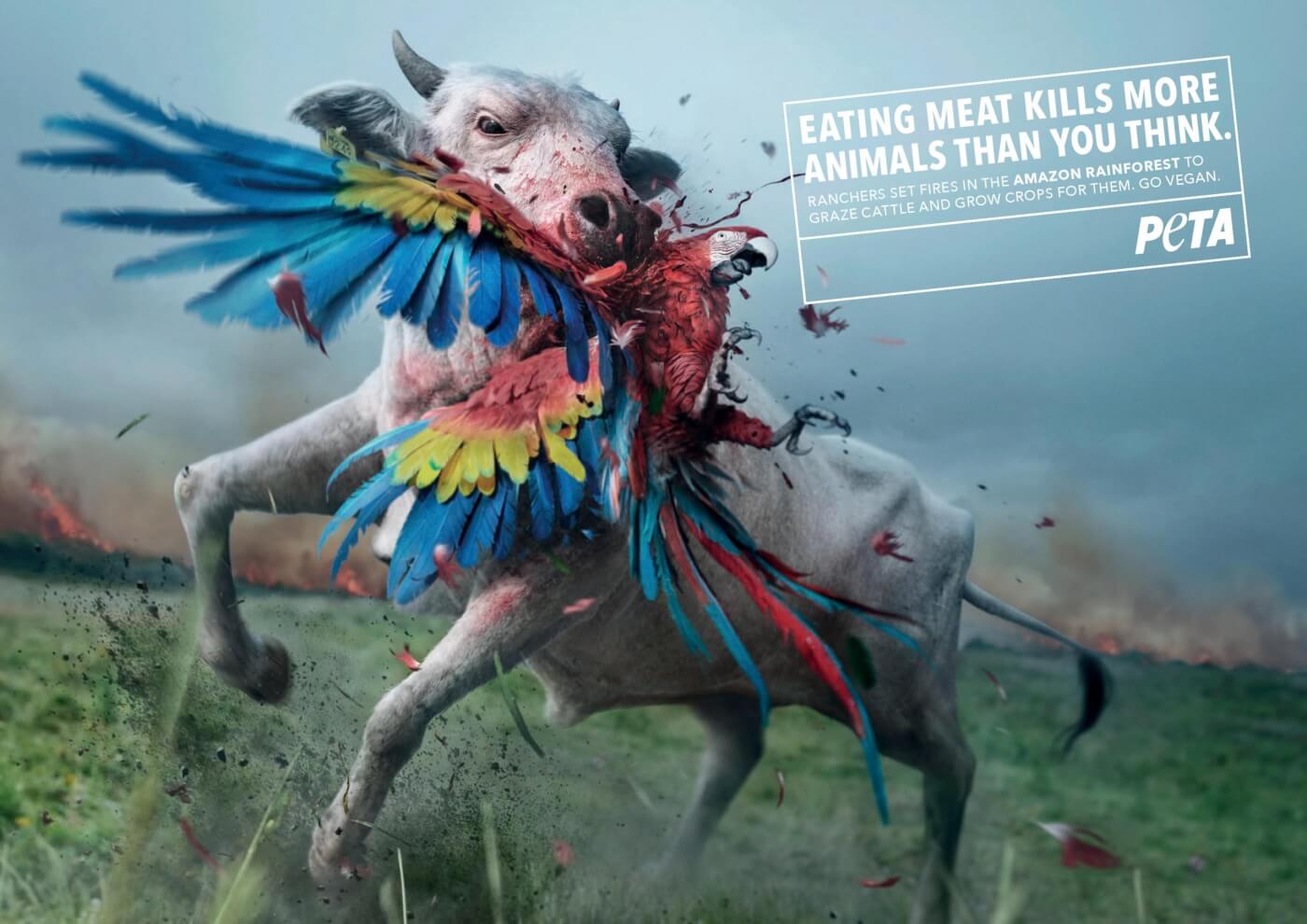
“I Want You To Change” – Go Vegan PETA Ad Campaign.
For decades, animal rights activist groups have targeted the culture of rural America, denigrating the optics of the American rancher through provocative ad campaigns, children’s movies, and silly, so-called “reality” t.v.
From Animal Cops – Houston, to Highway Cowboys, ranchers have been depicted as incapable, negligent and abusive. The resulting shift in public perception is now permeating throughout public policy.
A decade after Highway Cowboys depicted the “life or death” wrangling of stray cattle off west Texas roads, the Texas Animal Health Commission, a private Livestock Association, and state lawmakers are now pushing for a highly controversial, searchable, online cattle brand registry.
In Texas, ranchers have to re-register their brands once every 10 years. In some counties, this process requires a trip to the courthouse, similar to registering a vehicle. However, brand records are kept in the county’s “brand book,” which law enforcement can reference if they need to identify the owner of stray cattle.
Having already passed the Senate, House Bills 147, and HB 1417 are the final steps towards making that “brand book” centralized, by way of a searchable online database.
According to prime sponsor, Rep. Ryan Guillen, the bill would allow ranchers to register their brands online. County clerks would then send that information to the Texas Animal Health Commission, which would be responsible for maintaining the digital database.
“This ensures that registered brands are centrally stored in a searchable online database, making them easily accessible to ranchers, law enforcement and county clerks while reducing administrative burdens,” Guillen said at a recent hearing of the state House Committee on Agriculture & Livestock, which he chairs
First introduced in March, the House versions of the bill received immediate backlash from ranchers across Texas, and the nation.
Texas cattle rancher J.C. Adams took to X, sharing one possible scenario if the bill were to become law;
“Imagine seeing a VW bus roll by on a weekend. And first thing Monday morning Texas Animal Health is at your gate demanding trespass rights to catch, count, inspect, and vaccinate your animals. And, while there, looking at your facility like watering tanks, holding pens, squeeze chutes for APHIS cruelty compliance.”
Similar to the private contractors followed in the t.v. series Highway Cowboys, the Texas and Southwest Cattle Raisers Association (TSCRA) is a private association contracted by the state to track down stray and stolen cattle. The TSCRA, which already hosts a searchable online database, is also the primary proponent of HB 147.
However, according to Rep. Guillen, the TSCRA’s searchable online database – built to help their public-private police force locate owners – isn’t comprehensive enough, and creates “administrative burden.”
Ranchers, on the other hand, feel the database will merely become another tool used against them.
“Supporters of the bill claim it is merely an administrative improvement: transitioning county-level brand and mark recordings from paper to a digital, searchable, and statewide electronic system overseen by the Texas Animal Health Commission (TAHC),” rancher Shad Sullivan explains. “What could be more reasonable?”
“Yet this framing is dangerously incomplete,” Sullivan warns. “By transferring all county livestock records into a central, publicly searchable state database, H.B. 147 effectively creates the architecture for a traceability regime. One that, when coupled with global sustainability frameworks, ESG mandates, and federal grant incentives, can evolve into a livestock version of CBDC—programmable, monitored, and eventually permissioned behavior imposed on ranchers.”
HB 147 was postponed in committee until tomorrow, April 15, 2025, where it will come up again at 10:00am. Also introduced by Rep. Ryan Guillen, the bill is accompanied by House Bill 1417, which would expand the centralized database to include goats, sheep, hogs, horses, and Electronic ID ear tags.
Introduced originally by Senator Charles Perry as Senate Bill 503, the proposed legislation has already passed the Senate. If passed by the House without further amendment, the proposal for a centralized, searchable online brand database will go to Governor Greg Abbott to be signed into law.





0 Comments